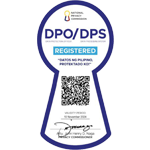Experiential and problem-based learning on research, theories, and principles are encountered, during daily bedside rounds, conferences, and lectures. Regular morphology sessions are offered to enhance trainees’ capabilities to detect abnormalities on peripheral and bone marrow smears. Communication skills on family counselling, goal directed treatment and breaking the bad news is also emphasized in the training program. Required rotations provide the trainees with a holistic and multidisciplinary perspective and approach to patient care. After successfully completing the program, trainees are eligible to take the subspecialty certification examinations in hematology and oncology offered by PSPH and PSPO.
- Home
- About PCMC
- Transparency
- Patient Guide
- Research & Trainings
- Research
- Trainings
- OUR SERVICES
- Our Services
- Admitting
- Adolescent Medicine
- Cancer & Hematology Center
- Cardiology
- Child Neuroscience (Brain)
- Covid Lab/RT-PCR Test
- Critical Care
- CT Scan
- Dental
- General Pediatrics
- Gastroenterology
- Hemodialysis
- MRI
- Neonatology
- Nephrology
- Nursing
- Pathology
- Perinatology Center
- Pharmacy
- Private Clinics
- Pulmonology
- Rehabilitation
- Surgery
- Telemedicine
- Radiology
- Bids & Awards
- Careers
- Contact Us
- Home
- About PCMC
- Transparency
- Patient Guide
- Research & Trainings
- Research
- Trainings
- OUR SERVICES
- Our Services
- Admitting
- Adolescent Medicine
- Cancer & Hematology Center
- Cardiology
- Child Neuroscience (Brain)
- Covid Lab/RT-PCR Test
- Critical Care
- CT Scan
- Dental
- General Pediatrics
- Gastroenterology
- Hemodialysis
- MRI
- Neonatology
- Nephrology
- Nursing
- Pathology
- Perinatology Center
- Pharmacy
- Private Clinics
- Pulmonology
- Rehabilitation
- Surgery
- Telemedicine
- Radiology
- Bids & Awards
- Careers
- Contact Us
Philippine Standard Time:
About the Cancer & Hematology Center
The Philippine Children’s Medical Center- Cancer and Hematology Division was designated by Department of Health as the national end-referral center for children and adolescents with blood diseases and cancer. Our Division is committed to provide quality and cost-effective comprehensive care to our patients, to train health care providers and to extend this to a network of referral centers in the different regions of the country. We conduct researches on the management and control of Pediatric hematologic and oncologic disorders.

Our Division have different subspecialty programs such as:
Subspecialty Programs
Leukemia and Lymphoma
Hemophilia and Bleeding Disorder
Thalassemia and Hemoglobinopathy
Soft Tissue Sarcoma
Neuro-Oncology
Infection Control
Pediatric Palliative Care
Childhood Cancer Survivorship and Transition Program
Rates and Fees
Training Program
The PCMC Cancer and Hematology Division offer a 3-year fellowship training program in Pediatric Hematology and Oncology accredited by the Philippine Society of Pediatric Hematology (PSPH), and the Philippine Society of Pediatric Oncology (PSPO). The program gives opportunities for trainees to gain expertise in the practice of both Pediatric Hematology and Oncology. Trainees are guided as they experience the process of inpatient and outpatient diagnosis, treatment, and care of various hematologic and solid tumors conditions (both benign and malignant). Fellows also have elective rotation in Adult Hematology at SLMC and Radiation Oncology at USTH.
The Training Program cultivates a culture of learning and scientific curiosity. It aims to develop competent, confident, self-directed, compassionate and committed Pediatric Hematologists and Oncologists, who will be leaders in their respective communities. PCMC has an adequate number of cases per trainee, and a varied case mix that ensures familiarity of trainees with common, complex, hematology and oncology cases. The Hematology and Oncology Fellowship Program of PCMC presently recruits 3 – 4 fellows per year level with a total of 9 – 12 fellows in the program. The program also accepts applicants for lateral entry. Our Fellowship program was established since 1988 and graduated its first fellow in 1990. We have a total of 53 graduates successfully practicing in their respective hometowns ever since.
Contact Information
Teleconsult Hotline:0917 844 1193
Telemedicine Line:http://122.55.94.136/DOCTOR/

Philippine Children’s Medical Center
The Philippine Children’s Medical Center is one of the government-owned and controlled corporate National Centers for Specialized Health Care under the Department of Health. It is a 200-bed capacity tertiary hospital with a mandate to provide pediatric care, offer training programs for medical and allied health care providers, and be a center in clinical research.
Get In Touch
- (02) 85889900
- (+63) 917-8356458
- [email protected]
Quezon Avenue cor Sen. Miriam Defensor-Santiago Avenue, Bagong Pag-asa, Quezon City
Quick Links

Republic of the Philippines
All content is in the public domain unless otherwise stated.
About Gov
Learn more about the Philippine government, its structure, how government works and the people behind it.









